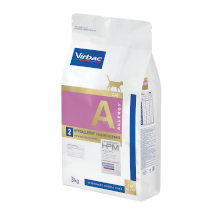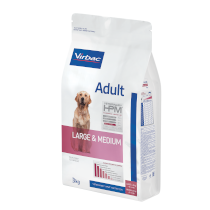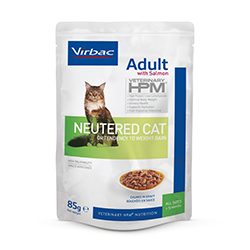Hypoallergy Cat
Health benefits
- Reduction of intolerances to certain ingredients and nutrients
- Management of most common allergies
- Perfectly fit the daily requirements of cats
- Secure the digestive function
Available sizes:
- 3 kg
Nutrion for carnivorious paragraph
Composition :
Tapioca**, hydrolysed fish protein* (29%), animal fats, minerals, lignocellulose, hydrolysed pork proteins*, beet pulp, brewers yeast, fructo-oligosaccharides, mono di and tri glycerides of fatty acids, hydrolysed crustacean (source of chitosan), chondroitin sulfate, Lactobacillus acidophilus.
* protein sources
** carbohydrate sources
Analytical constituents
(% as fed)
VETERINARY HPM® formulas contain no artificial flavours or colours.
| Analytical constituents (% as fed) |
|
|---|---|
| Moisture | 5,5 % |
| Protein | 31 % |
| Animal to vegetal protein ratio | 100/00 |
| Fat | 16 % |
| Minerals | 7,5 % |
| Crude Fibre | 4 % |
| NFE * | 36 % |
| Starch | 32 % |
| Calcium | 0,8 % |
| Phosphorus | 0,7 % |
| Sodium | 0,7 % |
| Methionine + Cystine | 1,5 % |
| Omega-6 | 3 % |
| Omega-3 | 0,7 % |
| Average molecular weight proteins (kDa) | 1,85% |
| ME** calculated | 389 kcal/100g |
| ME** measured in vivo | 383 kcal/100g |
| * Nitrogen Free Extract: Carbohydrates ** Metabolisable energy |
|
| Functional ingredients | |
|---|---|
| Bentonite | 5 g/kg |
| Lactobacillus | 7 mg/kg |
| Chitosan | 800 mg/kg |
| L-carnitine | 540 mg/kg |
| Added Vitamins and trace elements: | |
|---|---|
| Vitamin A | 17 000 IU/kg |
| Vitamin D3 | 1 700 IU/kg |
| Vitamin E | 610 mg/kg |
| Vitamin K3 | 0,22 mg/kg |
| Vitamin B1 | 11,2 mg/kg |
| Vitamin B2 | 8 mg/kg |
| Vitamin B3 | 113,4 mg/kg |
| Vitamine B5 | 14,5 mg/kg |
| Vitamine B6 | 7,6 mg/kg |
| Vitamin B8 | 0,15 mg/kg |
| Vitamin B9 | 1,9 mg/kg |
| Vitamin B12 | 0,046 mg/kg |
| Choline | 1 760 mg/kg |
| Taurine | 2 460 mg/kg |
| Copper | 12 mg/kg |
| Iodine | 0,4 mg/kg |
| Zinc | 110 mg/kg |
It is advisable to follow the ration table and to provide fresh drinking water.
| Body Weight (kg) | Daily Ration (g/day) | ||
|---|---|---|---|
| Overweight | Normal* | Underweight | |
| 2 | 20 | 20 | 25 |
| 3 | 30 | 35 | 35 |
| 4 | 40 | 45 | 50 |
| 5 | 50 | 55 | 60 |
| 6 | 60 | 65 | 70 |
| 7 | 70 | 80 | 85 |
| 8 | 80 | 90 | 100 |
| 9 | 90 | 100 | 110 |
| 10 | 100 | 110 | 125 |
| * Chat adulte stérilisé vivant à l'intérieur avec un poids optimal. La ration quotidienne est basée sur le poids actuel du chat et doit être ajustée tous les mois. |
|||
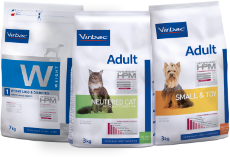
- Can I feed my kitten with a home-made diet?
The food that kittens receive throughout their first year must obviously provide energy and materials to build the skeleton, the muscles and all the new tissues. But nutrition doesn't stop there: it must also help kittens to develop a fully functioning nervous system and effective immune system. Any deficiency in essential nutrients (those who cannot be synthesized by the animal's body) during this very delicate period may affect the cat's future health.
Many recipes developed by veterinary nutritionists are available for owners who wish to prepare a nutritionally balanced home-made diet for their kitten. However, it is illusory to succeed in respecting all the required conditions because the nutritional balance of a household ration is subject to various hazards. The owner will always find it difficult to follow the recipe exactly, the necessary ingredients are not always available, and the nutritional composition of the ingredients can vary considerably depending on the origin of the product. When preparing a home-made diet, no laboratory analysis can verify the nutritional composition of the raw materials used!
Therefore, even when accompanied by the distribution of a mineral and vitamin supplement, home-made diets for cats often show deficiencies in several nutrients such as choline, iron and thiamine. In addition, cats cannot synthesize vitamin D as humans do (via exposure to UV rays) and this vitamin must be provided daily in the diet.
- Can I feed my kitten with a vegetarian diet?
The cat is a strict carnivore, which means that certain nutrients it needs cannot be provided by a plant-based diet. Such diets can cause major nutritional deficiencies with serious consequences on health. For this reason, a kitten should never be fed a vegetarian diet.
- Can I feed my kitten with raw meat diets?
Raw meat diets (red meat or chicken) are very popular among certain cat breeders but raw meat diets are deficient in calcium and phosphorus. The Calcium/Phosphorus ratio is totally inappropriate for the feline species, especially in terms of bone growth. Such a diet can cause major nutritional deficiencies with serious consequences on health. For example, when fed exclusively a raw meat diet, the kitten is exposed to the risk of pathologic fractures following minor trauma.
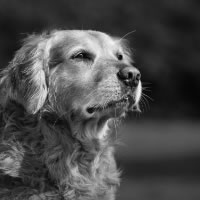
More than 6 vets out of 10 recommend our food
(source: GIE AC 2020 survey, 1519 responses)
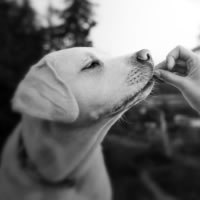
On average, our food is rated above 4/5
(source: * conso animo, shopmium, que choisir and 60 millions conso)
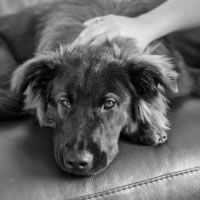
94% acceptance for medium and large dogs, 92% for small and very small dogs and 84% for cats


